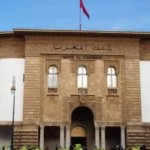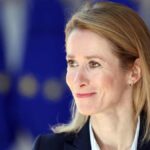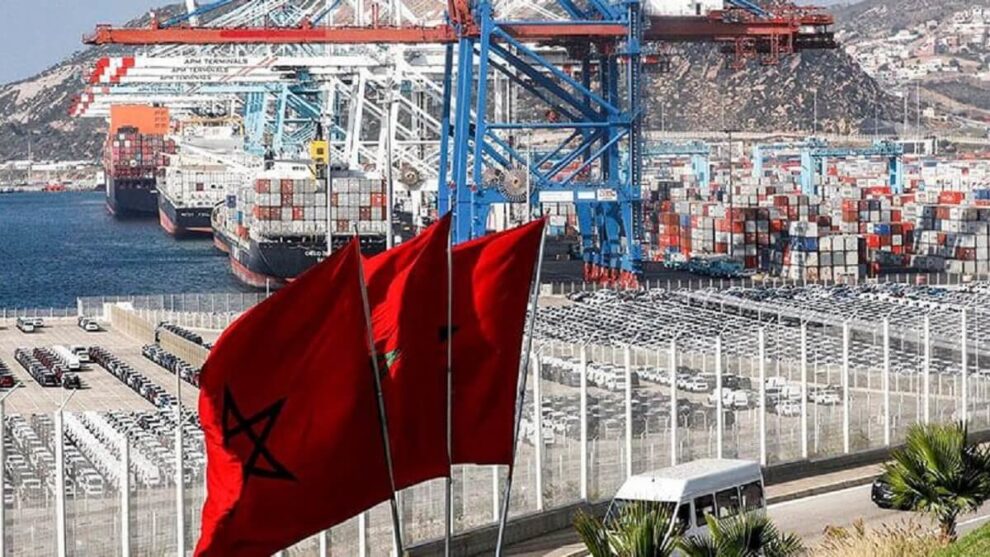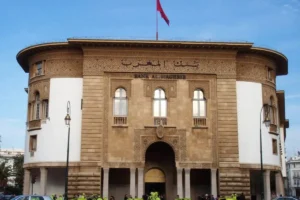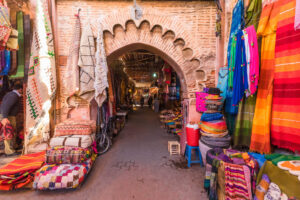Rabat – Morocco’s automotive sector has become a “pivotal” player in the national economy, emerging as the country’s leading export sector this year, Hicham Chaoudri, director of investment at the Ministry of Investment, Convergence and Evaluation of Public Policies, said in a recent interview with Morocco World News (MWN).
In the first half of 2023, Morocco’s automotive industry overtook phosphate to become the leading exporting sector, with exports totaling MAD 70.9 billion ($7 billion), recording an impressive 34% year-on-year growth rate.
Morocco relies on the industry to lower its external trade deficit and boost employment. So far, data indicates that the industry is delivering on its promise.
“With 2 OEMs — original equipment manufacturers — and over 250 major international companies operating in the kingdom, it employs more than 220,000 Moroccan individuals,” Chaoudri told Morocco World News in an exclusive interview on the sidelines of the ongoing IMF-World Bank meetings in Marrakech.
For many years, Morocco’s automotive industry capitalized on cheap labor, in addition to proximity to Europe and robust infrastructure, to appeal to investors.
In recent years, however, the national industry has gradually transitioned into the manufacturing of complex components with high-added value, paving the way for the industry to contribute to the creation of white-collar jobs.
While the car industry is seemingly thriving, the 2022 EU’s decision to ban the sale of new passenger cars and vans using internal combustion engines (ICE) by 2035 cast a shadow of uncertainty on the future of one of Morocco’s biggest industries. The block is the primary target market for Moroccan-made cars.
Since the EU announced its decision to ban internal combustion engine cars, the government has indicated on several occasions that the car industry will be part of the transition to a less carbon-intensive economy.
The Industry Minister, Ryad Mezzour, said in September last year that the country would “double” production of electric cars in the next two years.
According to Chaoudri, the ministry’s investment director, the Investment Ministry is “proactively implementing measures to secure the long-term competitiveness of Morocco’s automotive industry” in light of the worldwide shift towards electric vehicles (EVs).
He explained that Morocco has made a “strategic move” towards EVs and the development of a domestic battery ecosystem.
Valued at $56.4 billion in 2022, the EV batteries industry is projected to reach $134.6 billion by 2027, and Morocco is arguably “well-positioned” to become a key supplier in the emerging industry, Energy Minister Leila Benali said in October 2022.
Morocco is banking on its vast phosphate reserves (roughly 70% of the global reserves), a key ingredient in a type of lithium battery. Cobalt, another essential component for EV batteries, is also abundant in the North African country.
At the start of this year, the Moroccan government and the Chinese-European electric mobility company GOTION High-Tech signed a Memorandum of Understanding (MoU) to establish a gigafactory dedicated to producing electric car batteries and energy storage systems.
The first of its kind in Africa, the gigafactory is projected to cement Morocco’s potential to manufacture the most expensive part of EV vehicles. Currently, EV batteries account for 40% of the total cost of EV vehicles. The project comes with a price tag of $6.4 billion.
According to Chaoudri, the investment ministry is working to attract more global car manufacturers. “We’ve engaged with experts and actively participated in two significant international automotive events in recent months,” he said in reference to Morocco’s participation in the 2023 Auto Shanghai in China and the Automobilwoche in Germany.
To Chaoudri, the ministry’s interaction with key global players has “reaffirmed that Morocco possesses the essential strengths and is heading in the right direction to establish itself as a highly competitive hub for the EV supply chain.”
Morocco’s New Investment Charter
After it was voted by the parliament in December 2022, Morocco’s new investment charter, a document detailing a list of incentives and reforms aiming to boost the flow of foreign investment, was officially implemented in March 2023.
Chaoudri maintains that within just six months of implementation, the National Investment Commission has “given the green light to 40 investment projects, totaling MAD 108 billion ($10.8 million) in investment and paving the way for the creation of over 40,000 jobs.”
He contends that the investments are “poised to have a significant positive impact, aligning with the charter’s objectives of fostering job growth, promoting gender equality, and advancing sustainable development.”
He further told MWN that the investments would “contribute significantly to leveling regional disparities within the kingdom” of Morocco.
A little over 70% of the incentives allocated to the said projects will benefit initiatives outside the Tanger-Casablanca axis, he explained, adding that, “prior to the charter’s introduction, it held over two-thirds of private investments in Morocco.”
While the Investment Charter has given traction to government work, Chaoudri insisted that the increased flow of investments predated the legislation.
Since October 2021, “nine commissions have convened (seven before and 2 after the charter’s introduction), resulting in the approval of 124 projects totaling MAD 175 billion ($17.5 million) in investment, creating 85,000 jobs,” he said.
FDIs in Morocco in a challenging global economy
Similar to other emerging economies, the flow of foreign direct investment (FDI) to Morocco was severely affected by the adverse global economic conditions.However, Chaoudri seems to be convinced that it’s only a “temporary slowdown.” For him, comparing FDIs in 2023 to the previous years is largely inadequate, as 2022 was a “standout year.”
Last year was “the second-best year in over a decade,” he argued, adding that this was driven by a number of “remarkable investments, like Koch Industries’ exceptional commitment with OCP.”
He further added that “if the current trend persists this year, it could align with the annual average of the past decade.”
To “rejuvenate” FDIs, the ministry is said to be working closely with the national export and investment agency AMDIE to conduct international promotional campaigns aimed at attracting more foreign investments.
Over the past two years, Chaoudri explained, “roadshows have been organized in several countries including the UK, Germany, Japan, China, India, Spain, and the US,”
He argued that the efforts have led to “tangible results,” with numerous projects in sectors such as electric mobility, automotive, aerospace, digital, textiles, agri-food, renewable energy, and tourism now in the process of implementation in Morocco.
“We maintain an optimistic outlook for the future and have confidence that FDI inflows will continue to grow in the coming years,” he concluded.
Source: Morocco World News

